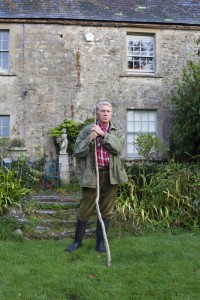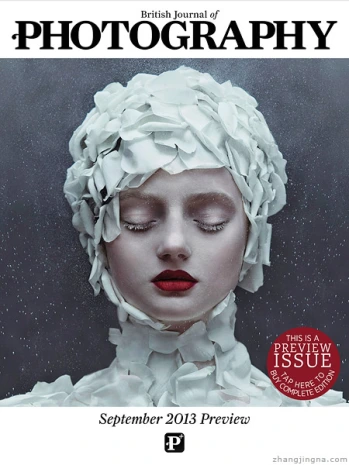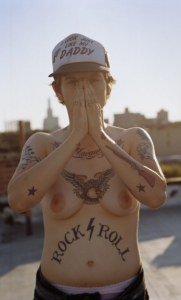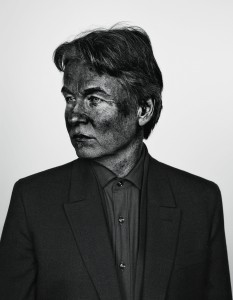I feel very fortunate to work with Don McCullin, since joining the Ian Parry Scholarship as a picture desk rookie at the Sunday Times magazine almost 14 years ago. We’ve had countless enjoyable conversations, usually about life issues and our love of Somerset. The New Statesman magazine asked me to interview him and here is our unabridged conversation:
RM: ‘Shaped By War’ was your largest exhibition to date, a retrospective of your work spanning 50 years at the Imperial War Museum. You have another one coming up at Visa Pour L’Image in Perpignan, what is your motivation behind doing these exhibitions now?
DM: Well first of all it was because I am coming to the end of my modern life in photography. I’ve still got plans, I’m not giving up photography, but I’m changing my course a bit. I’m going to leave chaos behind when I die, because my family won’t totally understand all this work. So I’m putting this work into perspective, having these exhibitions, so my family will understand what it all relates to and what it all means.
RM: You play a very hands-on role in putting exhibitions together.
DM: I don’t want to lose control of the work that I risked my life for. I don’t want to put that opportunity into the hands of someone who doesn’t understand the fear and the depth of the price I had to pay to get those pictures. Emotionally they still live with me today, those images and memories.
RM: Which aspects of the London exhibition in particular do you feel more attached to or have a particular relevance for you?
DM: I’m more attached to one or two of the bigger stories, like the Battle of Hue, the offensive in 1968. Which is an awful long time ago, but I still think about it on a daily basis. It always comes back to visit me at night when I’m trying to get to sleep. If I press the wrong button these things come flooding back to me. They’re not welcome. Those days in that battle when I slept on tables or I slept near corpses or I saw people run over by tanks that looked like carpets. They’re too embedded in my psyche.
RM: Have you ever sought counselling? Are you the type of person who wants to resolve this in yourself?
DM: Not many people have asked me that question! If I went to see a councillor or a psychiatrist, I would make them pay me! There are some amazing human minds out there that have gone through all kinds of hell and suffering but I inflicted it all upon myself by volunteering to go. It hasn’t destroyed me, but to a point, it has messed up my life in someway or another.
RM: Do you feel like it’s your burden to carry because you took it upon yourself as a journalist and as a witness?
DM: If I couldn’t handle going to those wars and revolutions, I should have never taken the air ticket from the Sunday Times and got on the plane in the first place. I thought I was strong enough to do it, so I don’t really have to right to sit around and complain about what it might they have done to my life and me.
RM: You’ve spent most of you life witnessing human tragedy and suffering. Would you agree that in some ways, our capacity to create but not comprehend tragedy is now greater than ever?
DM: I look back, forty, fifty years of my life and say to myself has anything changed? The truth of the matter is that it hasn’t. When you have struggled for independence under despot rulers, many of the wars I went to in Africa in particular, and they will rage on for another fifty years, long after I’m gone from this earth.
It makes me feel disappointed that the world hasn’t cleaned up its act. I wasn’t the only one reporting on war. I was one of many people who went out there, many with integrity, some with other agendas; fame and money, things like that.
Photojournalism today doesn’t have much of a chance. Newspapers don’t want to run a story about the AIDs tragedy and wars anymore. Then you have the idea of journalists and photographers going to war and being embedded, which makes me want to throw up.
RM: You nearly lost your life in Cambodia in 1970; indeed you have a lot of experience of being under threat as a journalist. The threats to journalists today are as grave as they ever were but there have been several recent deaths and serious injuries to journalists in the field.
DM: We all start out with no experience. You have to have this baptism.
There are equally as many opportunities in our metropolises and the cities of our world. There are many wars and struggles for survival going on there, which are just as important.
RM: Lets talk about the exhibition. Can you tell me about the ‘Guv’ners on Seven Sisters road in Finsbury Park’, I met one of them at your private view, colourful fellow!
DM: It was my ticket, the beginning of my whole journey into photography.
Pushing away everything we are talking about now, photography as I knew it is a form of celebration, in terms of the structure of family life, the colours of the whole environmental and social life that people grew into and grew up in. Photography was about recording that.
That one photograph was the making of my career. Once the Observer published it in 1958, it was up to me then to capitalise on it. I didn’t know anything about photography or photojournalism, and I had to quickly make a move and find out what people are talking about.
Photojournalism over the years has became more honest. In the old days, a lot of photographers in the Picture Post days used to stage up photos quite regularly. It was a well known fact.
I staged an image once. I photographed that dead North Vietnamese soldier with all his possessions because his body had been vandalised by souvenir hunters and other American marines. They threw all his stuff on the floor and were mocking him; I didn’t go along with it. When they left, I shuffled all those possessions together and photographed them as a statement of my own; to say this man who had these few possessions had every right to be photographed as a fallen hero because he was trying to unify his country.
A 19 year old or however old he was, he looked like a child to me, deserved better than this. So I thought what I did was justified. But it was the only time I would do it.
RM: You have intervened a couple of times and put your camera down. Would you talk to me about that?
DM: This is the most important question of all really, especially to someone who has been in the presence of men that are about to be executed. I remember one day being in the jungle in the Nigerian war when some Nigerian soldiers were captured and the rebel commander said “kill them”.
Everybody looked at each other with disgust. I looked at the French photographer I was with, his name was Giles Carron, we didn’t really want to hear what we thought we just heard. The commander was angry when he heard no gunshots. Before they shot these men down, these Nigerian soldiers, they were looking at Giles and me and thinking that we could save them. You can’t save people.
I saw hundreds of people being murdered in Beirut in the Christian purge in East Beirut, when they were killing the Palestinians. They would look at me with their eyes blazing, you could see their eyes were baying for help and there’s nothing you could do about it. In fact the Christian soldiers said to me “If you take any pictures we will shoot you as well”.
You come away absolutely destroyed by the fact that you couldn’t save a life. Having said that, when I was in that big battle in Vietnam, I did pick out the odd soldier and carry him away from the front on my shoulders, because I was young and strong. You can do things like that, or you can carry and old lady in a battle inside as I did once.
When you are in this psychology, this place that is terrible, the question that used to come back to me all the time was “What the hell has this got to do with photography?”
RM: Do you feel that you have been pigeonholed as ‘McCullin the war photographer’ when actually it’s not the only thing you’ve ever done?
DM: No. When I left the Sunday Times, I discovered there was another side to me, and it was astonishing really to be able to delve into this new part of my, what is described as talent, I suppose. It’s a funny word for someone to use about himself or herself but you know, there was more than one side to me and I found it.
It’s been my salvation, because it’s allowed me to use it as a cure for those terrible days full of memories that I wished would go away, but will never will.
To be continued…




